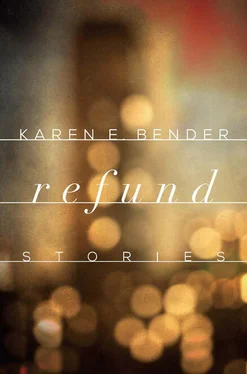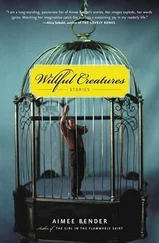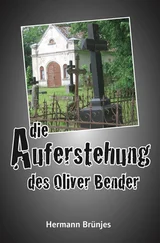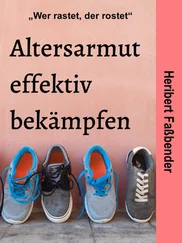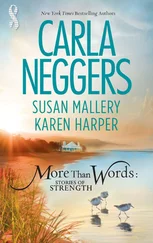We ordered more from the menu, from the breakfast side, bacon and French toast and scrambled eggs, and the dinner side, pot roast and fettuccini Alfredo and steamed broccoli. There was nothing so special about him; he was just a luggage salesman, not even really a handsome one. He wanted to be caught. He tried to conceal nothing. His face was just his face. I knew that he could see everything in mine, the raw haggardness of wanting. I did not feel like a security agent. When his hand reached for mine, it made me feel like god.
THE NEXT DAY, I TRIED TO LOOK PAST THEM ALL, TOWARD THE LINES of passengers, toward John Comet. I saw him again and again, coming toward me, but it was not him; there were hundreds of not hims, marching toward their destinations. They walked, clutching their briefcases, their faces damp, to New York, Philadelphia, Boise, Las Vegas, a crowd of people to be questioned, searched, waved on, or detained. My heart was a hook; it was reaching toward John Comet.
He came along, finally, dragging another piece of luggage with many compartments. He seemed to be a candle, glowing through the airport’s blue dimness, though his incandescence was invisible to everyone but me.
WE MET IN THE SAME COFFEE SHOP AGAIN A FEW DAYS LATER. HIS presence before me as a regular human was startling and almost disappointing; it was as though he were a ventriloquist for the John Comet I saw, glowing, in my mind. We ordered what he had before, and also Jell-O and a salad of beets.
He told me about his son. “Halloween,” said John Comet. “I’ve never been able to take him around for Halloween.”
“Why not?”
“His mother makes up stories about me.”
I took note of his face. It was not the face of a liar; a liar’s face was speeded up. His face was still, which was hard to do if you were pressing something down.
“What sort of stories?”
“Oh, like I didn’t watch him. He ran into the street.”
“Did he?” I asked.
“No!” he said. He said it so sharply I believed he was honest. “Not when I was there.”
I leaned forward, watching; I understood that he wanted to spend time with me partly because he wanted to be judged.
“Why did she say this about you?” I asked.
“She wanted to get away,” he said. “She loved someone else.”
He clasped his hands. He was sitting there like a cup of coffee. Looking at him, his square face, his dark eyes, his salesmanishness, you couldn’t tell he was someone who had slid off the surface of his family into nothing.
We left the coffee shop. This time we drove to his apartment. It wasn’t what I expected, but was a worn-out, motel-like place, with stucco walls and a red rippled roof. At the door of his apartment, we started to kiss. He tasted dark and sour, of coffee and salt, and I wanted to follow that taste into the rest of him. His fingers held onto my shoulders. I had never noticed everything this way. The lights from the streetlights were long, radiant bars.
Then his body rustled, and he stepped away from me.
“They’re awake,” he said.
The window was open. Inside his apartment, right beside the window, was a large wire cage. It held four beetles. Their shells resembled glass, purple and green and iridescent, the colors so deep everything around them was shameful, blanched. The beetles were almost braggy in their gratuitous loveliness. We stood, faces almost touching, as the beetles made their way across the limp shredded lettuce with their fragile black legs.
“Let’s go inside,” I said.
I felt his breath on my ear, his body pressed against mine. I longed for him so much my fingertips hurt. John Comet paused. “Not now,” he said.
“Why not?”
“They’re eating. We can watch them from here.”
I wanted to go in now. I wanted to touch those shells that resembled glass but weren’t. But mostly, I wanted John Comet. I wanted to press our bodies together, run my hands along his arms, his chest, walk through him like a door to my salvation. Instead, we stood for a long time, looking at those beetles, gleaming.
THE NEXT DAY, I WAS STATIONED AT THE END OF THE BIN CONVEYOR. I was the last person passengers would encounter before going onto their flight. Lester came up to me.
“You’re on questioning today, Sally,” said Lester, brightly.
“Yes sir,” I said. Lester had taken to carrying around clipboards, taking absurdly copious notes. If I slipped up, the decision would be easy.
I was, in my porous state of longing and fear, highly effective. I found items of interest: a Swiss army knife, art deco scissors, a package of firecrackers.
And here was John Comet, pulling along his luggage. His face set in its same expression. He was off today to Philadelphia. No sign of what we had done the night before, or what we hadn’t. He stood in the body scanner, arms lifted as the machine whirred. He was highlighted under his right arm.
“He needs a patdown,” said Deanne, looking around. “Is there a man available?”
There was not.
John Comet looked at me, his face blank as milk. “She can do it,” he said.
Deanne looked at me with eyebrows raised, like, Do you want to touch this weirdo?
I stood very still.
“You good with this, Sally?”
“I’m a team player,” I said, crisply.
We went in a corner.
“Lift your arms, sir,” I said.
He raised them into a T. I could search him however I wanted. I began to slide my hands down his arm. His arm was surprisingly taut and thin in the airport light, as I pressed down the sides for any metal objects. He stared straight ahead, at nothing.
“Done?” he asked.
“Not yet, “ I said.
I squeezed the other arm. Sometimes people set off the machine for no reason. A slight move, a radiance, a ghostly threat only the machine could see. I stood, official, wearing my uniform, but I did not want to let go of his arm.
He let out a breath. Of love? Desire? Annoyance? Did he just want to get on with his day? I lifted my hand off his jacket. Slowly. A fingertip, a palm, the thin material of his suit. Each moment was sorrowful, releasing him. I missed each inch, each cell slowly. Slowly. I let go. Then I stepped back, back into the world of only me.
“All clear,” I said. “You may proceed to your destination.”
His eyelids fluttered. I didn’t know what that meant. He nodded at me, and smiled, a beautiful smile, and took hold of his luggage and walked onto his gate, and I stood in the light, as he went away.
JOHN COMET CALLED ME TWO NIGHTS LATER. HE HAD JUST GOTTEN off his plane. He wanted to see me. Now.
We met in the diner. He wasn’t hungry. He wanted to walk out of the diner into a park. He had the worn, dazed presence of someone who’d crossed a time zone — something had been lost. His hair was damp and sticky. His body had the stale smell of airplane air.
He pressed his mouth to mine the moment we walked into the park. The park black, the grass glistening under the grayish fluorescent lamplight. He kissed me hard, slowly, as though trying to inhale some important element inside of me. Gold. We fell together onto the grass. We were velvet and water and arms and lips, and we were no one, and that was what we wanted, to climb into another person and stretch out into their lovely darkness. To believe another could make room for you, could perhaps keep you safe. That had to be the answer, for I did not want to contain only myself, my rotten sadness. His arms were thin and steely, and the earth was hard and damp under us. We were alive, weren’t we? Didn’t this prove we were alive?
Suddenly, he rolled away. I lay, breathless, beside him.
“I saw my son,” he said.
“Good,” I said. Now, on with it. He stretched beside me, a bar of candy.
Читать дальше
